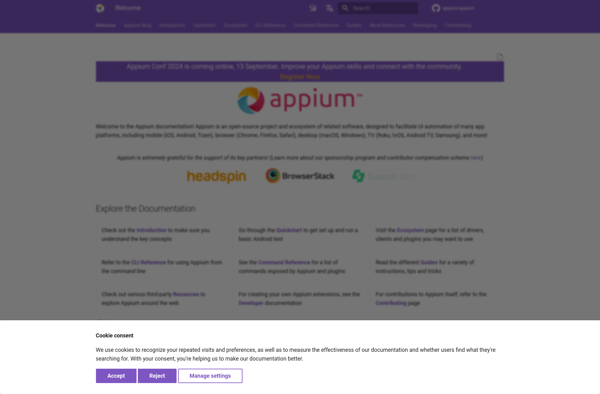Description: Appium is an open source test automation framework for mobile apps. It allows you to automate tests on native, hybrid and mobile web apps for iOS and Android using Selenium WebDriver API.
Type: Open Source Test Automation Framework
Founded: 2011
Primary Use: Mobile app testing automation
Supported Platforms: iOS, Android, Windows
Description: Selenium is an open-source automated testing framework used to test web applications across different browsers and platforms. It can be used to automate tasks like testing user interfaces, validating functionality, performance testing, etc.
Type: Cloud-based Test Automation Platform
Founded: 2015
Primary Use: Web, mobile, and API testing
Supported Platforms: Web, iOS, Android, API

